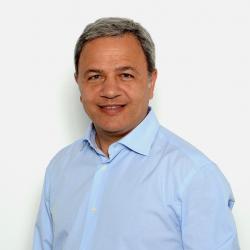Digital diagnosis is huge for patients, we’re making it easier for people to understand the data and ultimately, take charge

This article was originally published for MedTech Week 2020 by Angelo De Rosa, vice president & general manager Rhythm Management EMEA at Boston Scientific.
Digital health is one of those terms these days that we see everywhere – just typing it into Google gets over 3 million hits and countless hashtag results on Twitter. For me, the simplest explanation of digital health is the convergence of medical devices with digital technologies. Which I personally find very exciting – what could be more exciting than a technology which helps people with their health every day? My grandfather was a doctor and as a child I saw him going above and beyond to help patients, working well into the evening. My father was an engineer, so I inherited his love of technology and gadgets. Working in the medical device industry allows me to connect the two, inspiring me every day.
In the last few years, the rise of digital health tools has been exponential to me and with digital health technology expanding into the world of patient diagnosis, there is a huge wealth of information at our fingertips, which is massive. We have the chance to now bring data and diagnosis directly into the patient’s world, making it much easier for them to understand. We are even giving them the ability to be in charge, which for a patient, is amazing. Even for the older generation, who are less relaxed with technology, the options are simpler now, or they have children or grandchildren who can help them understand the tech and give them the peace of mind they need with these new resources.
Considering the increasing pressure on healthcare systems in every country, going digital and using technology is becoming a mainstream solution, which saves money and brings efficiencies in the long term when it comes to diagnosis; technology is helping us to diagnose health conditions and issues earlier, identifying patients who require their physician’s urgent attention, ultimately improving patient outcomes at lower costs.
Sophisticated technology also exists today which allows physicians to monitor patients’ remotely and bring them to the hospital only when is necessary. In heart failure, the HeartLogic multisensor diagnostic allows physicians to detect risk of heart failure symptoms worsening up to 30 days in advance. This diagnostic tool has already had positive feedback from doctors that the alert is working, keeping patients out of hospital and freeing up their own time for the patients who more urgently need help, or activities such as education and training.
And this is just the beginning. A recent study which tested the idea of using robots in rehabilitation of older people found that people were less likely to feel inferior or judged by the robots than by a person helping them, giving them more motivation and making them feel less self-conscious. For me this is an exciting and heart-warming benefit, further demonstrating the potential of Artificial Intelligence.
Of course, there are drawbacks to all of this in the way that we are bombarded by data and we need to ensure people understand it properly; it can’t be the case that patients are emailing their doctors about any statistic or information from their Apple watches, but the point is that we have the data, it’s about using it properly and incorporating it in the right way.
Lastly, I am amazed every day seeing the incredible outcomes medical technologies have on people, hearing stories from my colleagues and from patients themselves about how they have been able to do amazing things, such as cycle through the alps, participate in the national pole vault championships or simply get on with their lives thanks to medical technology such as the subcutaneous implantable cardiac defibrillator (S-ICD) or deep brain stimulation. Celebrating medical devices and technology is so important, to remind us all how many people are saved or have their lives transformed by medical technologies across the world every moment of the day.
Check out MedTechWeek.eu to learn more or visit BostonScientific.eu for more information about our latest medical technologies.